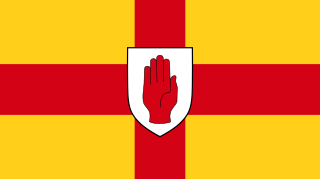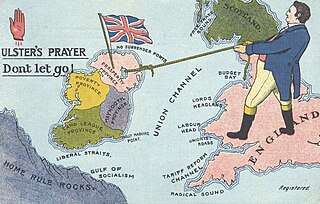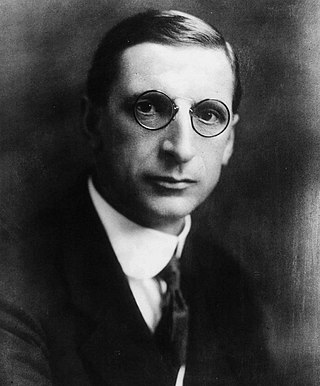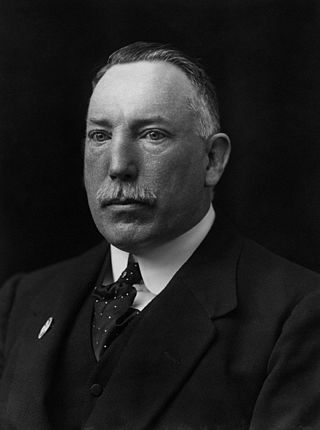Related Research Articles

Ulster is one of the four traditional Irish provinces. It is made up of nine counties: six of these constitute Northern Ireland ; the remaining three are in the Republic of Ireland.

The Parliament of Northern Ireland was the home rule legislature of Northern Ireland, created under the Government of Ireland Act 1920, which sat from 7 June 1921 to 30 March 1972, when it was suspended because of its inability to restore order during The Troubles, resulting in the introduction of Direct Rule. It was abolished under the Northern Ireland Constitution Act 1973.

Northern Ireland is one of the four countries of the United Kingdom, situated in the north-east of the island of Ireland. It was created as a separate legal entity on 3 May 1921, under the Government of Ireland Act 1920. The new autonomous Northern Ireland was formed from six of the nine counties of Ulster: four counties with unionist majorities – Antrim, Armagh, Down, and Londonderry – and two counties with slight Irish nationalist majorities – Fermanagh and Tyrone – in the 1918 General Election. The remaining three Ulster counties with larger nationalist majorities were not included. In large part unionists, at least in the north-east, supported its creation while nationalists were opposed.

The Democratic Unionist Party (DUP) is a unionist, loyalist, and national conservative political party in Northern Ireland. It was founded in 1971 during the Troubles by Ian Paisley, who led the party for the next 37 years. Currently led by Jeffrey Donaldson, it is the second largest party in the Northern Ireland Assembly, and is the fifth-largest party in the House of Commons of the United Kingdom. The party has been described as centre-right to right-wing and socially conservative, being anti-abortion and opposing same-sex marriage. The DUP sees itself as defending Britishness and Ulster Protestant culture against Irish nationalism and republicanism. It is also Eurosceptic and supported Brexit.

Unionism is a political tradition on the island of Ireland that favours political union with Great Britain and professes loyalty to the British Crown and constitution. As the overwhelming sentiment of Ireland's Protestant minority, following Catholic Emancipation (1829) unionism mobilised to keep Ireland part of the United Kingdom and to defeat the efforts of Irish nationalists to restore a separate Irish parliament. Since Partition (1921), as Ulster Unionism its goal has been to maintain Northern Ireland as part of the United Kingdom and to resist a transfer of sovereignty to an all-Ireland republic. Within the framework of a 1998 peace settlement, unionists in Northern Ireland have had to accommodate Irish nationalists in a devolved government, while continuing to rely on the link with Britain to secure their cultural and economic interests.

The 1918 Irish general election was the part of the 1918 United Kingdom general election which took place in Ireland. It is now seen as a key moment in modern Irish history because it saw the overwhelming defeat of the moderate nationalist Irish Parliamentary Party (IPP), which had dominated the Irish political landscape since the 1880s, and a landslide victory for the radical Sinn Féin party. Sinn Féin had never previously stood in a general election, but had won six seats in by-elections in 1917–18. The party had vowed in its manifesto to establish an independent Irish Republic. In Ulster, however, the Unionist Party was the most successful party.
The Northern Ireland peace process includes the events leading up to the 1994 Provisional Irish Republican Army (IRA) ceasefire, the end of most of the violence of the Troubles, the Good Friday Agreement of 1998, and subsequent political developments.

North Down is a parliamentary constituency in the United Kingdom House of Commons. The current MP is Stephen Farry of the Alliance Party. Farry was elected to the position in the 2019 general election, replacing the incumbent Sylvia Hermon. Hermon had held the position since being elected to it in the 2001 general election, but chose not to contest in 2019.

Belfast City Council is the local authority with responsibility for part of the city of Belfast, the capital and largest city of Northern Ireland. The council serves an estimated population of 341,877 (2019), the largest of any district council in Northern Ireland, while being the smallest by area. Belfast City Council is the primary council of the Belfast Metropolitan Area, a grouping of six former district councils with commuter towns and overspill from Belfast, containing a total population of 579,276.

The 1921 Northern Ireland general election was held on Tuesday, 24 May 1921. It was the first election to the Parliament of Northern Ireland. Ulster Unionist Party members won a two-thirds majority of votes cast and more than three-quarters of the seats in the assembly. Sinn Féin in particular was shocked at the scale of the Unionist victory, having spent considerable resources on the campaign, and had expected to win between 1/3 and 1/2 of the seats. The election was conducted using the single transferable vote system.

The All-for-Ireland League (AFIL) was an Irish, Munster-based political party (1909–1918). Founded by William O'Brien MP, it generated a new national movement to achieve agreement between the different parties concerned on the historically difficult aim of Home Rule for the whole of Ireland. The AFIL established itself as a separate non-sectarian party in the House of Commons of the United Kingdom of Great Britain and Ireland, binding a group of independent nationalists MPs to pursue a broader concept of Irish nationalism, a consensus of political brotherhood and reconciliation among all Irishmen, primarily to win Unionist consent to an All-Ireland parliamentary settlement.
Sinn Féin is the name of an Irish political party founded in 1905 by Arthur Griffith. It subsequently became a focus for various forms of Irish nationalism, especially Irish republicanism. After the Easter Rising in 1916, it grew in membership, with a reorganisation at its Ard Fheis in 1917. Its split in 1922 in response to the Anglo-Irish Treaty which led to the Irish Civil War and saw the origins of Fianna Fáil and Fine Gael, the two parties which have since dominated Irish politics. Another split in the remaining Sinn Féin organisation in the early years of the Troubles in 1970 led to the Sinn Féin of today, which is a republican, left-wing nationalist and secular party.

Protestant Irish Nationalists are adherents of Protestantism in Ireland who also support Irish nationalism. Protestants have played a large role in the development of Irish nationalism since the eighteenth century, despite most Irish nationalists historically being from the Irish Catholic majority, as well as most Irish Protestants usually tending toward unionism in Ireland. Protestant nationalists have consistently been influential supporters and leaders of various movements for the political independence of Ireland from Great Britain. Historically, these movements ranged from supporting the legislative independence of the Parliament of the Kingdom of Ireland, to a form of home rule within the United Kingdom of Great Britain and Ireland, to complete independence in an Irish Republic and a United Ireland.
Billy McKee was an Irish republican and a founding member and leader of the Provisional Irish Republican Army.

Since 1998, Northern Ireland has devolved government within the United Kingdom. The government and Parliament of the United Kingdom are responsible for reserved and excepted matters. Reserved matters are a list of policy areas, which the Westminster Parliament may devolve to the Northern Ireland Assembly at some time in future. Excepted matters are never expected to be considered for devolution. On all other matters, the Northern Ireland Executive together with the 90-member Northern Ireland Assembly may legislate and govern for Northern Ireland. Additionally, devolution in Northern Ireland is dependent upon participation by members of the Northern Ireland Executive in the North/South Ministerial Council, which co-ordinates areas of co-operation between Northern Ireland and the Republic of Ireland.

The 2005 United Kingdom general election in Northern Ireland was held on 5 May 2005 and all 18 seats in Northern Ireland were contested. 1,139,993 people were eligible to vote, down 51,016 from the 2001 general election. 63.49% of eligible voters turned out, down 5.1 percentage points from the last general election.

The Springfield Road is a residential area and road traffic thoroughfare adjacent to the Falls Road in west Belfast. The local population is predominantly Irish nationalist and republican. Parts of the road form an interface area with the neighbouring Ulster loyalist areas of the Greater Shankill and it was the site of much activity during the Troubles. The Springfield Road includes the Ballymurphy and New Barnsley districts and is overlooked by Black Mountain and Divis.
During the 2012 North Belfast Riots sectarian disorder and rioting between loyalists and republicans occurred when rival parades, authorised by the Parades Commission, took place.

John Finucane is an Irish lawyer, footballer, and Sinn Féin politician. He has been the Member of Parliament (MP) for the Belfast North constituency of the House of Commons of the United Kingdom since the 2019 general election.
References
- ↑ Hugill, S. Shanties from the Seven Seas: Shipboard Work-songs and Songs Used as Work-songs, Routledge, 1979, p.468
- ↑ Peake, William, ed., A Collection of Orange and Protestant Songs, Belfast Newsletter, Belfast, 1907
- ↑ Welsh, Charles, ed., The golden treasury of Irish songs and lyrics, Volume 2, Dodge Publishing Company, New York, 1907, p. 410, accessible on Google Books
- ↑ Finnegan, R. (ed) The Penguin book of oral poetry, 1978, p.198; Irish Traditional Music Archive
- ↑ Maume, Patrick. The Long Gestation: Irish Nationalist Life, 1891-1918, Palgrave Macmillan, 1999, p.130
- ↑ Sinn Fein, 2 Nov. 1912, p.3
- ↑ Clements, Paul, Romancing Ireland, Lilliput Press, 2014
- ↑ Johnston, Denis, Nine Rivers from Jordan, Derek Verschoyle, 1953